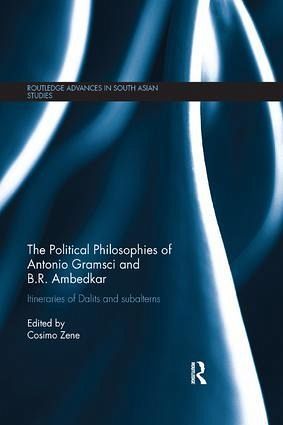
The Political Philosophies of Antonio Gramsci and B. R. Ambedkar
Itineraries of Dalits and Subalterns
Herausgeber: Zene, Cosimo

PAYBACK Punkte
35 °P sammeln!
Bridging two generations of scholarship on social inequality and modern political forms, this book examines the political philosophies of inclusion of subalterns/Dalits in Gramsci and Ambedkar's political philosophies. It highlights the full range of Gramsci's 'philosophy of praxis' and presents a more critical appreciation of his thought in the study of South Asian societies. Equally, Ambedkar's thought and philosophy is put to the forefront and acquires a prominence in the international context.



